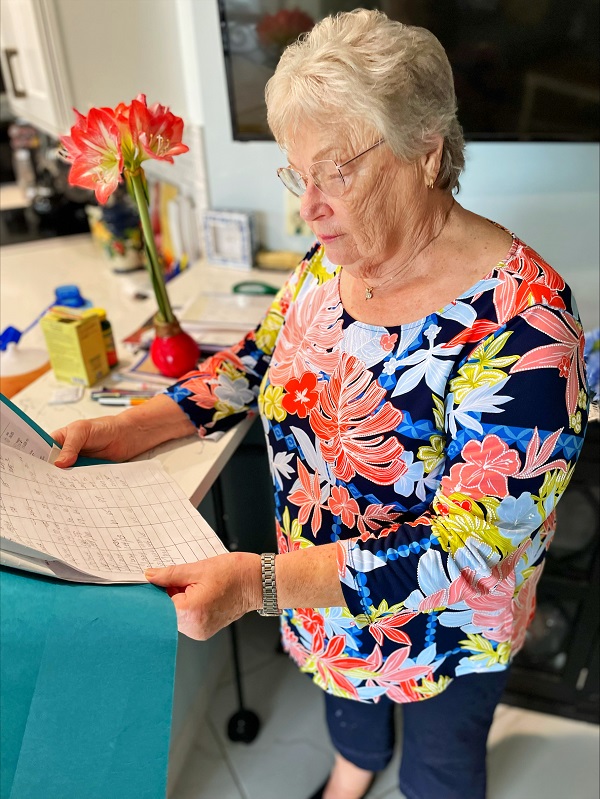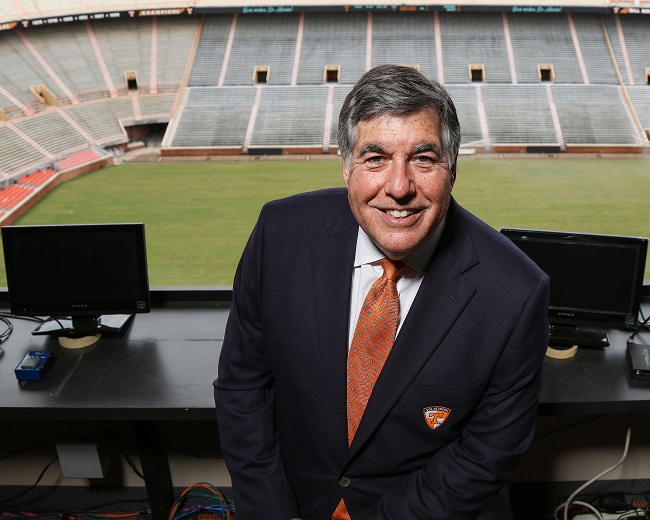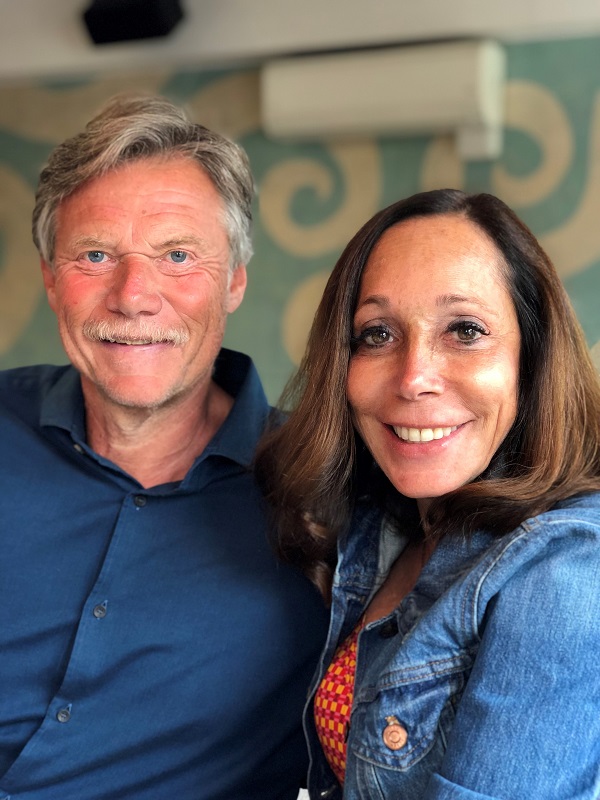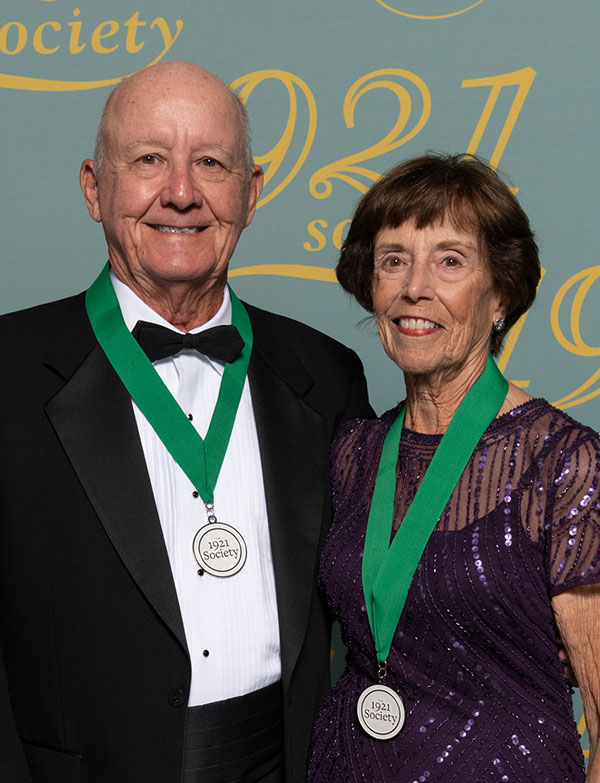Becoming Heart Wise: Martin South Patients Take Heart Care Home

Jolene Polidoro is wise in many ways, and now she can add heart wise to her repertoire. The 81-year-old patient came to the Emergency Department (ED) at Cleveland Clinic Martin South Hospital in October 2023 with labored breathing and fatigue. An underlying kidney condition was causing water retention and affecting her heart.
Through a new program at Cleveland Clinic called Save the Failing Heart, she has learned to manage her health better. She now pays close attention to her diet, is vigilant about fluid intake and is staying active. She also diligently watches her salt intake, makes sure she drinks enough water and monitors her weight and blood pressure.
“Doctors give us advice,” says Jolene Polidoro. “It’s up to us to put it into practice.”
And she is doing just that. Following her doctors’ advice and having clear parameters to monitor has yielded positive results for Jolene, who is staying at a healthy weight, regaining mobility, avoiding trips to the hospital and enjoying life with her family.
Providing Tools to Prevent Readmission
Many patients, like Jolene, have trouble creating healthy habits. They wind up back in the ED because of this. Parth Patel, MD, and Matthew Mozzo, DO, both hospital-based internists at Martin South, knew something could be done to help prevent repeated emergencies.
They applied for and received a Catalyst Grant to help patients stay healthy at home. Their program provides heart patients with self-monitoring tools and follow-up appointments via telemedicine. Doctors and nurses coach patients on medication management to reduce readmissions.
“Our goal is to help patients manage their own heart health with proven tools that are easy to use and help them stay out of the hospital,” says Dr. Patel.
Patients receive a kit with scales to weigh themselves, water bottles to measure fluid intake, a blood pressure cuff and a log to help them track and report back to their caregivers. Patients also learn about salt intake and the risks to their heart.
Bringing the Idea to Life with A Catalyst Grant
Funded entirely through philanthropy, Catalyst Grants provide vital seed funding to try new ideas and prove new concepts and approaches. 100% of contributions to the Catalyst Grants are combined and awarded to help advance caregivers' ideas. Twice a year, caregivers from across Cleveland Clinic are invited to apply for Catalyst Grants. Through a competitive process, these one-time grants are awarded to the project proposals that show the most promise for making an impact within one year. Caregivers must report on their progress and return any unused funds.
Gifts are quickly put into action and support the entire cycle of ideas, from innovations to outcomes. The more money that is raised, the greater the number of ideas―like the one Dr. Patel and Dr. Mozzo had―can become a reality.
"The project would not have happened without the funding of the Catalyst Grant," says Dr. Mozzo. "The grant allowed us to provide education, resources and physical medical tools to help each patient live their best life."
Dr. Patel agrees and is grateful those who are supporting Catalyst Grants with donations. "Thank you for contributing to a fund that aims to support meaningful programs led by caregivers that directly impact patient care and outcomes while advancing innovation and scientific discovery," he says.
What a Celebrated Tennessee ‘Voice’ Is Saying About Cleveland Clinic

Often in football, taking a knee means you’ve won the game. That’s what Bob “Voice of the Vols” Kesling had in mind after his knee replacement surgery. He thought, game over – back to work, back to life. But that wasn’t the case for the Knoxville, Tennessee, media celebrity. The pain in Bob’s knee persisted for three years until an infectious disease specialist discovered that the joint had been contaminated. A treatment plan and corrective surgery were advised, but at the urging of friends, Bob decided to get a second opinion at Cleveland Clinic.
Before we get to that part of the story – which, spoiler alert, has a happy ending – let’s learn a few things about Bob.
Cutting His Teeth on the Football Field
Bob Kesling enjoys his sports.
“I played football every year from first grade on … all the way through high school,” Bob shared. And naturally, he was thrilled when he was invited to join the University of Tennessee (UT) Volunteers as a walk-on fullback. “I played on the freshman team and got to play quite a bit, but … was never going to be a big star in the SEC (Southeastern Conference).”
While a student at UT, Bob became a film editor on the Vol Network. He started broadcasting full time in 1974 and took the reins from John Ward, the original “Voice of the Vols,” after sitting beside him for 15 seasons. Kesling is proud, too, to have had a long history with the Lady Vols basketball team, which included calling the esteemed Coach Pat Summitt’s first six NCAA national championships.
Bob treasures the lessons learned from Ward, Summitt and others throughout his life. “With Pat, there were no excuses,” he reflected. “Once, I guess I was trying to ask her why CBS and ESPN weren’t calling me, why they didn’t see my greatness. … And she just gave me that famous Pat Summitt stare and said, ‘I think you do a great job, but … you’re obviously not good enough. You got to get better.’ That wasn’t what I was expecting to hear. She hit me on the head with a hammer” and she stirred in him the motivation to push himself to the next level of his career.
Finding Purpose
In addition to football and his work at UT, Bob is passionate about his family, faith, philanthropy and volunteerism.
“Ten years ago, I was the Knoxville United Way chair, and I visited all of our 46 agencies. What hit me most was how a lot of these agencies are working on shoestring budgets … and the other thing that really hit me was how so many people in this community get up every morning and their only goal all day is to help somebody else.”
Not surprisingly, Bob said “yes” when he was approached about mentoring a struggling middle schooler, William Large. “We got together every Thursday. I’d bring him over to my office and we’d have dinner and we’d work on his homework and I’d give him sports magazines to get him to read. … I’d take him to UT football practices, and he got to meet the coaches and some of the players. Then, I’d take him over to UT basketball and he’d come to games. …”
Under Bob’s tutelage, William graduated from high school, played football at a junior college and then served four years in the Navy. William now lives in Georgia, with his wife and 3-year-old son, working as a Navy recruiter. “Being William’s ‘big brother’ absolutely changed my life. William is part of our family” – which includes Bob’s childhood-sweetheart-turned-wife, Tami, and their two daughters, two sons-in-law and four grandchildren, who all live in the Knoxville area and come together on Sundays for their Blue Bloods-style dinners.
Helping to Improve Lives
“I played football all those years and played basketball in high school, and I ran track and I didn’t have one single injury,” Bob mused. “My first injury was in 1997 when I slipped out of a sat truck (a mobile communications satellite station) at an SEC championship game in Atlanta and tore my right patella.” Later, he tore his meniscus (twice) on his left knee and scheduled the knee replacement surgery in 2019.
But his knee never recovered “quite right,” Bob said. “It was always kind of inflamed and kind of hurting. It got to the point where I couldn’t go upstairs or get on the bus with the team.”
The Vols’ orthopaedic physician suggested Bob see a joint specialist, who subsequently sent his imaging and lab results to infectious disease experts, who at last discovered the problem. Bob’s local medical team recommended he have a spacer placed in his knee while they treated the infection. Once the infection was cleared, they would take the spacer out and put in a new knee. While Bob and Tami were confident the medical team in Tennessee could handle the procedure, they decided to consult with Brendan M. Patterson, MD, Chair of Orthopaedic Surgery.
The couple marveled at what they saw and experienced at Cleveland Clinic… the facility, the volunteers, the staff and how quickly they were seen. One reason Bob ultimately chose to have his surgeries performed at Cleveland Clinic, he said, was Dr. Patterson’s assurance that he’d “have an army of infectious disease doctors involved in the surgeries and overseeing (his) recovery. … He put his hand on my knee and he said, ‘Trust me. We’re going to fix this.’”
Bob and Tami headed back to Tennessee within a few hours of being seen with everything scheduled, including home health. “We were just flabbergasted by how efficient and kind everybody was,” Bob said. “I expected it to be a first-class experience, but it exceeded every expectation. … This is an elite hospital, not only in the state of Ohio, but in the world, and they act like it. … And Dr. Patterson put such a personal touch on everything” – even going to Bob’s hotel room at one point to change his dressing.
The Keslings are supporting orthopaedic research at Cleveland Clinic because of the care Dr. Patterson and his team extended to them, said Bob, whose knee “still feels great,” by the way. “We’re very blessed,” he acknowledged, “and we feel if you’re in a position to help other people, you need to do it.”
Gift Aims to “Spark Hope” for Digestive Disease Research in Weston

It’s estimated that more than half a million Americans have Crohn’s disease, a type of inflammatory bowel disease that causes inflammation of the digestive tract. Symptoms can be difficult to live with, including abdominal pain, severe diarrhea, fatigue, weight loss and malnutrition.
“Crohn’s disease has been a part of my life for decades,” says Naples, Florida resident Ellen Shulman. “I know firsthand the uncertainty, pain and debilitating effects that accompany it, as well as the emotional impact on those who love you.”
Her own experience with the illness is what motivated her and her husband, Steven Jay Shulman, to make a $5 million gift to Cleveland Clinic Florida in 2022. Their gift is funding research and education in the Digestive Disease Center at Weston Hospital, led by Steven Wexner, MD, PhD (Hon), FACS.
In recognition of their generous contribution, the Center was named the Ellen Leifer Shulman and Steven Shulman Digestive Disease Center.
“For both patients and their families, Ellen and I want to spark hope through action that will yield important results,” says Mr. Shulman, an entrepreneur and veteran of the managed care industry. “With this donation and the world-class leadership of Dr. Wexner, we believe that the Digestive Disease Center can achieve new breakthroughs in research and patient care. There will be increased hope both for digestive disease patients and those who love them, thanks to the Center’s work.”
World Class Care of Digestive Disease
Dr. Wexner has been helping build the digestive disease programs at Cleveland Clinic Florida for almost 35 years. “Our many achievements have been due to the efforts of our superlative team,” he says. “Since our inception in 1988 we have made numerous advances that have become global standards. Through our teaching we have disseminated our innovations to our residents and fellows who have become renowned leaders and to colleagues in virtually every country.”
Crohn’s disease has no known cause, although certain factors such as smoking, having an autoimmune disease or a genetic predisposition may increase the risk of developing the condition. And while Crohn’s disease has no cure, treatments and lifestyle changes can keep the disease in remission and prevent complications.
Driven by Gratitude
Dr. Wexner is grateful for the couple’s incredible philanthropy. “The Shulman’s unparalleled altruism ensures the ability to perpetuate our investigation and education to continue to improve patient outcomes throughout the world in the Ellen Leifer Shulman and Steven Shulman Digestive Disease Center.”
Despite her illness, Mrs. Shulman considers herself to be very lucky. “I have always had the unwavering support of family and friends, and for that I am forever grateful. It is this sense of gratitude that drives Steve and me to help others fighting digestive diseases.”
Generosity of Naples Couple Benefits Medical Care in Florida

Now married for 65 years, John and Angela Toth spent the early years of their marriage in their hometown of Cleveland before moving in 1973 with their son and daughter for new opportunities out of state. Little did they know they would return to Cleveland decades later for life-saving care.
The couple spent three years in Tennessee before settling in Detroit, where John (who goes by Jack) had a highly successful career in manufacturing, building facilities and creating jobs. By 1991, they purchased a second home in Bonita Springs, Florida.
In 1998, a few years after Jack’s retirement, the Toths sold their Michigan home and became full-time Florida residents. They were pleased when Cleveland Clinic expanded to Naples the next year. “It was good to have access to Cleveland Clinic care so close to home,” recalls Jack.
While the Naples campus was later sold, that did not sever the couple’s ties to Cleveland Clinic. Jack experienced a health issue in 2009, for which he sought a second opinion and traveled to the hospital’s main campus in Ohio.
“Cleveland Clinic saved Jack’s life,” says Angie of the care her husband received for bladder cancer, which included surgery in 2013 and subsequent surgery at Cleveland Clinic Weston Hospital in 2022. “We highly praise the urology departments in Weston and Cleveland.”
To express their gratitude, the Toths have made annual gifts to Cleveland Clinic for a number of years. This year, the couple joined the Pyramid Legacy Society after making a blended gift that provides for immediate support to Cleveland Clinic and additional funding in the future through a charitable gift annuity.
“We want to support the presence of Cleveland Clinic in southwest Florida so that more people can benefit from their high quality care,” Jack says, when describing his goal for the John and Angela Toth Fund for the Medical Future of Southwest Florida.
According to Cleveland Clinic Florida President and CEO Conor Delaney, MD, PhD, Cleveland Clinic shares the couple’s desire to enhance and improve care in the region.“We are very grateful for the Toths’ generosity, which will allow us to broaden the community’s access to Cleveland Clinic’s patient-centered care.”

